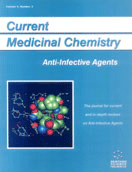Abstract
Infection by Herpes Simplex Virus (HSV) types I and II represent a worldwide medical problem. After the primary infection the virus establishes a life-long latency in the dorsal root ganglia and recurrences may occur at unpredictable times and rate. The most frequent clinical presentation of HSV infection is recurrent herpes labialis and herpes genitalis. The clinical expression varies according to the body site, the infected cell type, the relationship between HSV and the host immune status. Viral identification techniques such as immunohistochemistry and in situ hybridization on Tzanck smears and muco-cutanenous biopsies are helpful in the diagnosis of atypical cutaneous lesions. The treatment modalities of HSV infections include the reduction of viral load using antiviral agents, the non-specific immune stimulation of the host and specific vaccination in order to prevent new acquisition and to mitigate symptoms in already infected individuals. This review addresses various therapeutic options, their mode of action, and clinical value as well as the indications of the various drugs.
Keywords: Herpes Simplex Virus Infections, Herpes Simplex Virus hsv, types I and II, drug antidepressives, rhgm-csf, anesthetics surfactants, herbal extracts, antivirals, antiinflammatory, imiquimod
 14
14

